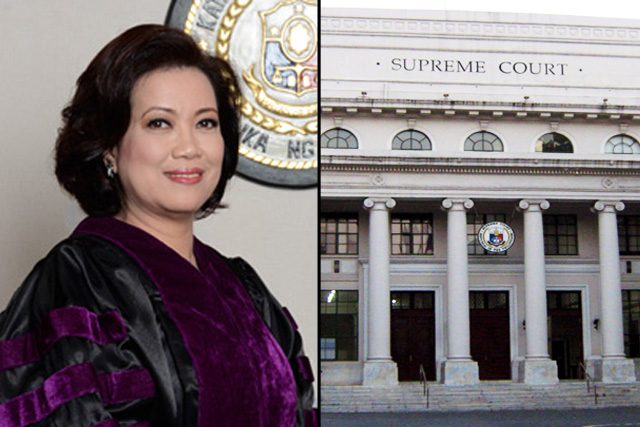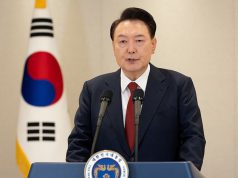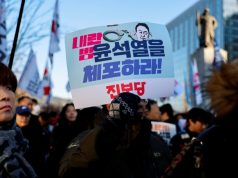Atty. Mel Sta. Maria is the Dean of the Far Eastern University Institute of Law. He also teaches at the Ateneo de Manila School of Law and the Pamantasan ng Lungsod ng Maynila College of Law.
Among the grounds for impeachment thrown against Chief Justice Maria Lourdes Sereno, one is particularly damaging not only on the institution itself but on her professional relationship with other justices.
Whereas, before, their differences were professionally debated quietly inside chambers, now there is great potential of witnessing one or two magistrates publicly throwing accusations against the Chief Justice. And the cross-examination of such magistrates surely will not be pleasant either.
The impeachment complaint avers that Chief Justice Sereno “manipulated the short list of the Judicial and Bar Council (JBC) to exclude then Solicitor General Francis H. Jardeleza, for personal and political reasons, thereby disgracing then Sol. Gen. Jardeleza, and curtailing the President’s power to appoint him.”
This particular ground has been categorized as “culpable violation of the Constitution.”
On its face alone, the allegation does not rise to the level of an impeachable offense. “Disgracing” a public official, by any stretch of the imagination, cannot be a “culpable violation of the Constitution.”
There is no averment of a premeditated design to seriously disobey the fundamental law. And is it not the constitutional prerogative of the JBC to precisely “curtail” or limit the power of the President to appoint SC justices by providing only a small number of nominees from among many applicants?
But just to be sure, the Supreme Court decision in “Francis H. Jardeleza vs. Chief Justice Maria Lourdes Sereno et al” — the case upon which the accusation was based — does not support the impeachment at all.
While the Jardeleza petition accused the JBC and Chief Justice Sereno with grave abuse of discretion, the Supreme Court, in its decision, extraordinarily did not make any categorical declaration that they were so motivated. Neither did the Supreme Court rule that Chief Justice Sereno was in bad faith or maliciously driven. There was also no statement or description that the JBC and, more particularly, Chief Justice Sereno “manipulated” the short list of the JBC. Moreover, non-existent was any finding of “personal or political reasons” on the part of the Chief Justice in the JBC selection and/exclusion process.
What is clear from the decision is the finding of the Supreme Court that the decision of the JBC, as a body — not Chief Justice Sereno alone –was a result of an “erroneous application on the original ground against Jardeleza’s integrity.” It was a case of incorrect application of the JBC rules which, according to the Supreme Court, were admittedly “vague and unfair” and “which leave much to be desired and should be reviewed and revised.”
The Supreme Court even suggested the JBC “fine tune the rules considering the peculiar nature of its function.” The message is clear: ambiguous rules may lead to faulty resolutions that may even result, though unwittingly, to absence of due process.
The JBC determination not to include Jardeleza in the shortlist as nominee for Supreme Court Justice may have been declared void for “lack of jurisdiction” but it cannot be the basis of the Chief Justice’s removal. To constitute a constitutional impeachable offense, the requirement is not merely a “violation of the constitution.” It must be a “culpable” one connoting a furtive and seriously deplorable act insidiously intended to endanger the state.
Nothing of that sort can even be inferred from the decision. Moreover, the JBC internal rule is not the Constitution and therefore, any perceived violation of such rule does not give rise to any constitutional violation.
If Chief Justice Sereno then showed concern for the qualification of Justice Jardeleza, she was free to make such an opinion. Legally, it was precisely the job of each JBC member to make a determination. Nothing wrong with that. In fact, failure to perform such duty is nonfeasance.
Justice Jardeleza may have taken offense at that time, but in law, any hurt he might have experienced is “damnum absque injuria” — meaning loss without injury for which the alleged “violators” cannot be held responsible. This is so because the harm resulted from an official and sovereign act of a constitutional body done in good faith.
And there are many cases of “damnum absque injuria.” For example, if Congress perfunctorily and in good faith legislates a law which turns out to be unconstitutional, resulting in loss to some people, the legislators cannot be sued for damages because they merely performed a sovereign act which is precisely their duty. The President, whose task it is to implement the law, cannot likewise commit a legal injury if he executed the law in good faith prior to its declaration as unconstitutional.
More and more, the harm to the country brought about by this Sereno impeachment proceeding is unfolding before our eyes. For one, it is totally a waste of the taxpayers’ money. Also, it will further erode whatever is left of the respectable image of the Supreme Court. And the sad part of it is that it will occur in the other branch of government, the Congress, more particularly the House of Representatives.










